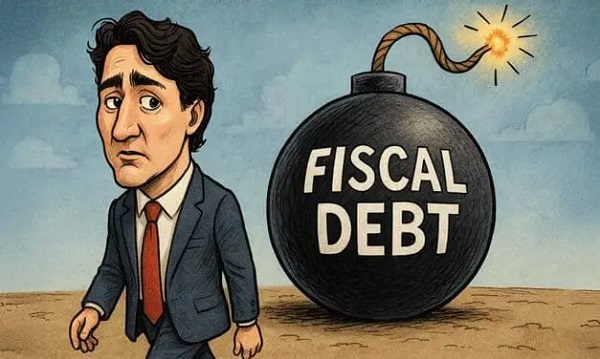Daily Caller
Trump Reportedly Told Netanyahu Israel Needs To Finish Gaza War By Time He Takes Office

From the Daily Caller News Foundation
By Adam Pack
Former President Donald Trump reportedly told Israeli Prime Minister Benjamin Netanyahu that if he wins a second term Israel’s war in Gaza needs to be finished by the time he takes office in January, The Times of Israel (TOI) reported.
Israel went to war with Hamas on Oct. 7, 2023, and the ensuing conflict has left the terrorist group crippled and swaths of the Gaza enclave in ruins. Trump has been a vocal supporter of Israel’s efforts to wipe out Hamas, but has expressed that he wants the war to end in short order, telling Netanyahu in July that it needs to be over by the start of 2025, two sources with direct knowledge of the matter told TOI.
The message was relayed to Netanyahu during the prime minister’s visit to Trump’s Florida Mar-a-Lago resort, the sources told TOI. While Netanyahu’s trip to Mar-a-Lago was widely reported on at the time, this is the first occasion it has been reported that Trump said this during the visit.
Trump didn’t go into specifics with Netanyahu about his request, so it’s possible he would support “residual” Israeli military activity in Gaza, a former U.S. official told TOI. Trump also wants Israel to secure the release of the remaining hostages in Gaza — some of which are American citizens — before he takes office in January.
Relations between Trump and Netanyahu were icy after Trump lost the 2020 election. Netanyahu congratulated President Joe Biden following that election in a video message, angering Trump. Trump also felt at the time Netanyahu wasn’t serious about resolving tensions between the Israelis and the Palestinians.
But the two have seemingly mended relations this year. They have spoken on several occasions since Netanyahu’s visit to Mar-a-Lago in July. Netanyahu has said that Trump had called him two days in a row recently.
However, Trump has said on multiple occasions that Israel’s war in Gaza needs to end quickly because it has devasted the enclave and the Palestinian population living there, raising concerns among Israeli officials, two Israeli officials told TOI earlier this month. While Israel’s military operations in Gaza have largely ended, the government doesn’t yet seem comfortable with withdrawing entirely — especially given concerns that Hamas or the Palestinian Authority, widely seen as a corrupt governing body, will fill the power vacuum.
Despite Trump’s wishes, there are some hardliners in Netanyahu’s orbit who have threatened to oust the prime minister from power if he ends the war.
“A fight with Trump is something he hasn’t really had to deal with, and I think it’s something he’d want to avoid, but [Finance Minister Bezalel] Smotrich and [National Security Minister Itamar] Ben Gvir may not let him,” a Knesset member told TOI.
The Trump campaign did not immediately respond to a request for comment.
Business
Canada is still paying the price for Trudeau’s fiscal delusions

This article supplied by Troy Media.
 By Lee Harding
By Lee Harding
Trudeau’s reckless spending has left Canadians with record debt, poorer services and no path back to a balanced budget
Justin Trudeau may be gone, but the economic consequences of his fiscal approach—chronic deficits, rising debt costs and stagnating growth—are still weighing heavily on Canada
Before becoming prime minister, Justin Trudeau famously said, “The budget will balance itself.” He argued that if expenditures stayed the same, economic growth would drive higher tax revenues and eventually outpace spending. Voila–balance!
But while the theory may have been sound, Trudeau had no real intention of pursuing a balanced budget. In 2015, he campaigned on intentionally overspending and borrowing heavily to build infrastructure, arguing that low interest rates made
it the right time to run deficits.
This argument, weak in its concept, proved even more flawed in practice. Postpandemic deficits have been horrendous, far exceeding the modest overspending initially promised. The budgetary deficit was $327.7 billion in 2020–21, $90.3 billion the year following, and between $35.3 billion and $61.9 billion in the years since.
Those formerly historically low interest rates are also gone now, partly because the federal government has spent so much. The original excuse for deficits has vanished, but the red ink and Canada’s infrastructure deficit remain.
For two decades, interest payments on federal debt steadily declined, falling from 24.6 per cent of government revenues in 1999–2000 to just 5.9 per cent in 2021–22—thanks largely to falling interest rates and prior fiscal restraint. But that trend has reversed. By 2023–24, payments surged past 10 per cent for the first time in over a decade, as rising interest rates collided with record federal debt built up under Trudeau.
Rising debt costs are only part of the story. Federal revenues aren’t what they could have been because Canada’s economy has stagnated. High immigration, which drives productivity down, is the only thing masking our lacklustre GDP growth. Altogether, Canada was 35th among 38 countries in the Organization for Economic Co-operation and Development (OECD) for per capita GDP growth from 2014 to 2022 at just 0.2 per cent. By comparison, Ireland led at 45.2 per cent, followed by the U.S. at 20.8 per cent.
Why should a country like Canada, so blessed with natural resources and knowhow, do so poorly? Capital investment has fled because our government has made onerous regulations, especially hindering our energy industry. In theory, there’s now a remedy. Thanks to new legislation, the Carney government can extend its magic sceptre to those who align with its agenda to fast-track major projects and bypass the labyrinth it created. But unless you’re onside, the red tape still strangles you.
But as the private sector withers under red tape, Ottawa’s civil service keeps ballooning. Some trimming has begun, rattling public sector unions. Still, Canada will be left with at least five times as many federal tax employees per capita as the U.S.
Canada also needs to ease its hell-bent pursuit of net-zero carbon emissions. Hydrocarbons still power the Canadian economy—from vehicles to home heating—and aren’t practically replaceable. Canada has already proven that chasing net zero leads to near-zero per capita growth. Despite high immigration, the OECD projects Canada to have the lowest overall GDP growth between 2021 and 2060.
The Nov. 4 release of the federal budget is better late than never. So would be a plan to grow the economy, slash red tape and eliminate the deficit. But we’re unlikely to get one.
Trudeau may be gone, but his legacy of fiscal recklessness is alive and well.
Lee Harding is a research fellow with the Frontier Centre for Public Policy.
Troy Media empowers Canadian community news outlets by providing independent, insightful analysis and commentary. Our mission is to support local media in helping Canadians stay informed and engaged by delivering reliable content that strengthens community connections and deepens understanding across the country
Business
Trump Raises US Tariffs on Canadian Products by 10% after Doug Ford’s $75,000,000 Ad Campaign


From the Daily Caller News Foundation
President Donald Trump announced Saturday he is increasing U.S. tariffs on Canada by 10%, after the leader of the country’s largest province said he would be pulling an anti-tariff ad — but not until after it could air during Game 2 of the World Series.
Ontario Premier Doug Ford stated Friday his government plans to pull the ad in question after Trump said he was ending trade negotiations with Canada the night before. The spot featured the voice of President Ronald Reagan appearing to sharply criticize “high tariffs” and “protectionist” policy, and used an edited form of remarks the then-president made in an 1987 radio address.
In announcing his intention to pull the ad — which was intentionally broadcast on major networks in American markets — Ford noted he “directed” his team to keep it live until after the second game of baseball’s Fall Classic on Saturday night, a move Trump initially called a “dirty play.” The ad also ran Friday night during Game 1.
Dear Readers:
As a nonprofit, we are dependent on the generosity of our readers.
Please consider making a small donation of any amount here.
Thank you!
Trump then declared Saturday he was going forward with a 10% tariff increase on Canada.
“Their Advertisement was to be taken down, IMMEDIATELY, but they let it run last night during the World Series, knowing that it was a FRAUD,” Trump wrote in a Saturday afternoon Truth Social post. “Because of their serious misrepresentation of the facts, and hostile act, I am increasing the Tariff on Canada by 10% over and above what they are paying now.”
“Canada was caught, red handed, putting up a fraudulent advertisement on Ronald Reagan’s Speech on Tariffs. The Reagan Foundation said that they, ‘created an ad campaign using selective audio and video of President Ronald Reagan. The ad misrepresents the Presidential Radio Address,’ and ‘did not seek nor receive permission to use and edit the remarks. The Ronald Reagan Presidential Foundation and Institute is reviewing its legal options in this matter,’” Trump added in his post, citing an organization dedicated to continuing the late 40th president’s legacy.
“The sole purpose of this FRAUD was Canada’s hope that the United States Supreme Court will come to their ‘rescue’ on Tariffs that they have used for years to hurt the United States,” Trump’s post continues. “Now the United States is able to defend itself against high and overbearing Canadian Tariffs (and those from the rest of the World as well!). Ronald Reagan LOVED Tariffs for purposes of National Security and the Economy, but Canada said he didn’t!”
The ad campaign carried a price tag of $75 million CAD (Canadian), roughly equivalent to $54 million, according to The Associated Press (AP). The taxpayer-funded ad was paid for by Ontario’s provincial government, which the premier leads.
“We’ve achieved our goal, having reached U.S. audiences at the highest levels,” Ford said in a Friday statement reported by AP announcing his plan to pull the ad after Game 2. “Our intention was always to initiate a conversation about the kind of economy that Americans want to build and the impact of tariffs on workers and businesses.”
“I’ve directed my team to keep putting our message in front of Americans over the weekend so that we can air our commercial during the first two World Series games,” the Ontario premier added.
Trump announced Thursday night on Truth Social he was ending trade negotiations with Canada due to the ad.
“Based on their egregious behavior, ALL TRADE NEGOTIATIONS WITH CANADA ARE HEREBY TERMINATED,” the president wrote in the post.
“TARIFFS ARE VERY IMPORTANT TO THE NATIONAL SECURITY, AND ECONOMY, OF THE U.S.A.,” he added [sic].
“High tariffs inevitably lead to retaliation by foreign countries and the triggering of fierce trade wars. Then the worst happens. Markets shrink and collapse,” Reagan’s edited radio message can be heard in the ad, which included a backdrop of mellow music and a video montage of people and landscapes. “Businesses and industries shut down and millions of people lose their jobs. Throughout the world, there’s a growing realization that the way to prosperity for all nations is rejecting protectionist legislation and promoting fair and free competition.”
“America’s job and growth are at stake,” Reagan can be seen delivering the ad’s final line on a TV screen before the words “Ontario” and “Canada” flash on the screen.
The 2025 World Series features the Toronto Blue Jays and Los Angeles Dodgers. The Blue Jays are the only Major League Baseball (MLB) team based in Canada despite having only one Canadian-born player on its 26-man World Series roster.
Ford, a member of the center-right Progressive Conservative Party has led Ontario, Canada’s most populous province, since 2018. His late younger brother, Rob Ford, served as Toronto’s mayor from 2010 to 2014. The younger Ford made national headlines in 2013 after admitting to having smoked crack cocaine “in a drunken stupor.”
Premier Ford’s office did not respond to the Daily Caller News Foundation’s (DCNF) request for comment. The White House did not immediately respond to the DCNF’s request for comment.
-

 Crime2 days ago
Crime2 days agoCanada Seizes 4,300 Litres of Chinese Drug Precursors Amid Trump’s Tariff Pressure Over Fentanyl Flows
-

 Alberta1 day ago
Alberta1 day agoFrom Underdog to Top Broodmare
-

 Alberta2 days ago
Alberta2 days agoHow one major media torqued its coverage – in the take no prisoners words of a former Alberta premier
-

 Alberta2 days ago
Alberta2 days agoProvince orders School Boards to gather data on class sizes and complexity by Nov 24
-

 Opinion1 day ago
Opinion1 day agoBill Gates Shakes Up the Climate Discussion
-

 Business1 day ago
Business1 day agoCanada’s economic performance cratered after Ottawa pivoted to the ‘green’ economy
-

 Business2 days ago
Business2 days ago“We have a deal”: Trump, Xi strike breakthrough on trade and fentanyl
-

 Business1 day ago
Business1 day agoCanadians paid $90 billion in government debt interest in 2024/25


